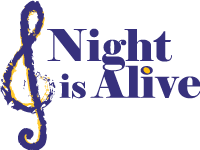
John Philip Sousa was a prolific composer of military marches and many other musical works. He earned the moniker, “The March King, because he composed over 130 marches. Perhaps his best-known works are “The Stars and Stripes Forever” and “The Washington Post March.” He also composed “Semper Fidelis,” the official march of the U.S. Marine Corps. You might not know that he also composed operettas, dances, orchestral suites, and overtures.
Sousa was born on November 6, 1854, in Washington, D.C. His father, Antonio, was a musician in the Marine Band. John Philip Sousa studied violin, piano, and brass instruments, and became a young apprentice with the Marine Band until he was 20 years old. For a time, he toured with theatrical orchestras and moved to Philadelphia, where he worked as a composer, arranger, and proofreader for a music publishing companies. Sousa returned to the Marine Corp and served as the 17th director of the Marine Band from 1880 to 1892. Under his leadership, the band attained new levels of excellence and popularity. Sousa played a role in the development of the sousaphone, as he sought a brass instrument similar to a tuba but was easier to play during parades.
John Philip Sousa went on to lead a civilian band after he left the Marine Corps. The band toured throughout the U.S. and Europe in the years leading up to World War I and helped to popularize ragtime in Europe. At age 62, he enlisted in the U.S. Naval Reserves after the United States declared war on Germany. Sousa was placed in charge of the band-training center at Great Lakes Naval Base in Illinois.
Sousa’s compositions are often performed at celebrations during national holidays. “The Stars and Stripes Forever” was designated as the official march of the U.S. in 1987.
The U.S. Marine Band, known as the President’s Own, is currently celebrating its 225th anniversary as the oldest continuously active professional music organization in the U.S. The Marine Corps also has a jazz orchestra featuring Marines from bands in San Diego and New Orleans.
The Airmen of Note is the premier jazz ensemble of the U.S. Air Force. It was formed in 1950 to maintain the tradition of Major Glenn Miller’s Army Air Forces dance band. The Airmen of Note perform big band music and contemporary jazz pieces throughout the world. The Jazz Ambassadors are the premier touring jazz band of the U.S. Army. This 19-piece ensemble performs jazz standards, patriotic music, and contemporary jazz as well as original compositions. Jazz vocalist Alexis Cole served in the U.S. Army for 6 years, where she performed with the West Point Jazz Knights.
The West Point Band and the U.S. Army Field Band (Jazz Ambassadors) perform versions of “God Bless America” and other patriotic music.
Some jazz musicians who have recorded iconic performances of patriotic songs include trumpeter Louis Armstrong, who played “The Star-Spangled Banner” at the Newport Jazz Festival in 1960. Armstrong believed that he was born on the Fourth of July, but his actual birthday was August 4.
Bassist Charlie Haden recorded a soothing instrumental version of “America the Beautiful” with saxophonist Michael Brecker, pianist Brad Mehldau, and other musicians. It appears on the “American Dreams” album.
Flutist Herbie Mann’s lilting version of “The Battle Hymn of the Republic” appears on his “Memphis Underground” album.
Patricia Martin
Photo by Tim Mossholder on Unsplash
